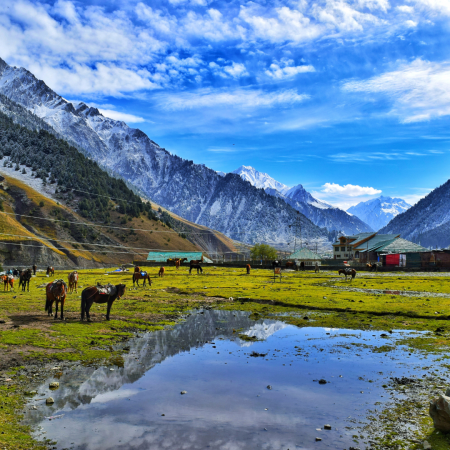
Pahalgam attack: Nearly 50 tourist spots in Kashmir shut amid security concerns
Date : 30th April, 2025
After deadly terror attack in Pahalgam, 48 out of 87 public parks and tourist sites in Jammu and Kashmir have been closed.
Though not announced through a formal government order, the closures of these tourist spots have been enforced on the ground, with gates locked and access blocked to several popular destinations.
In the case of several Mughal Gardens in south Kashmir, the doors to these spots have been locked.
The decision to shut down the tourist locations comes a week after terrorists shot dead 26 persons, mostly tourists, at Baisaran meadows in Pahalgam resort.
With tourism being a key economic pillar in Kashmir, the shutdown is a significant blow, both symbolically and financially. However, officials insist that the safety of locals and visitors remains the top priority.
Tensions between India and Pakistan rise
Tensions between India and Pakistan, nuclear-armed neighbours have increased since the attack, as the Pakistan Army continued its unprovoked firing across the Line of Control (LoC) on the night of April 28–29, targeting areas opposite the Kupwara and Baramulla districts, as well as the Akhnoor sector, marking the fifth consecutive day of such firing.
However, the Indian Army said it responded to the provocation in a measured and effective manner.
New Delhi and Islamabad have taken a raft of measures against each other since the Kashmir attack.
India has suspended the Indus Waters Treaty - an important river-sharing pact. Pakistan has closed its airspace to Indian airlines.
Rajnath Singh's security review meeting with PM Modi
Meanwhile, Defence Minister Rajnath Singh on Monday met Prime Minister Narendra Modi in Delhi to brief him on the security situation in Jammu and Kashmir and the military’s preparedness following the Pahalgam terror attack.
Their 40-minute meeting took place just hours after the Pakistan Army opened fire on several Indian posts along the Line of Control (LoC).


